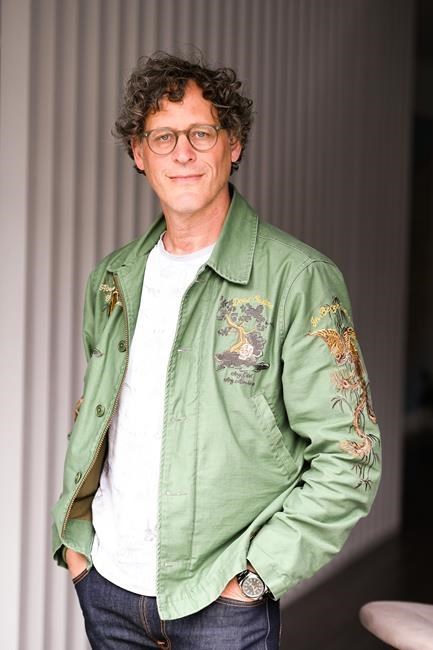
Canadian filmmaker Jamie Kastner is fighting to retain the raw footage from his documentary about an art fraud ring operating in northern Ontario after the province's police force served him an order demanding the material. Kastner is shown in this undated handout photo. THE CANADIAN PRESS/HO - Cave 7 Productions
March 24, 2023 - 10:54 AM
A Canadian filmmaker is fighting a police order seeking access to raw footage from his documentary about an alleged fraud ring involving fake Norval Morrisseau art, saying he has to protect his source material.
Jamie Kastner says he was shocked by the production order he received as Ontario Provincial Police and Thunder Bay, Ont., police were investigating the alleged creation and sale of fraudulent art under the famous Indigenous artist's name.
"You have to protect your sources," Kastner said in an interview.
"People talking to documentary makers or journalists cannot become synonymous with people talking to the police."
Kastner is the director of "There Are No Fakes," a documentary that follows Canadian musician Kevin Hearn – member of rock band the Barenaked Ladies – as he sues a Toronto art gallery after doubting the authenticity of a Morrisseau painting he purchased.
Morrisseau, also known as Copper Thunderbird, was a famous self-taught artist of Ojibwe ancestry who is considered a trailblazer for contemporary Indigenous artists across Canada.
Kastner interviewed 17 people for his film, including members of an operation in northern Ontario that allegedly produced fraudulent Morriseau art, as well as art dealers and those who bought and traded Morrisseau paintings
All interviewees agreed to appear on camera, Kastner said.
Police in Thunder Bay began an investigation into the alleged fraud ring not long after Kastner's documentary was released in April 2019, he said.
"I was of course delighted to hear that they were doing an investigation, because how often does your work in film or documentary actually inspire real life results," said Kastner.
Police later began asking to see Kastner's raw, unedited footage, he said, but he resisted.
In November 2022, Ontario Provincial Police – which had become involved in the investigation – handed him a production order, which demands a person deliver requested materials or make them available to law enforcement within a specific period.
Kastner said he believes police have already spoken to 15 of the 17 people he interviewed.
"The good stuff is in the film," he said.
Kastner said he had to hand over a hard drive with the raw footage to police earlier this month due to the production order, and that material is now sealed in a court office. Police have not so far viewed the material, he said.
The filmmaker said his lawyer is asking the court for a copy of the police affidavit used to support the production order, so that he can fight to protect the raw footage.
In June, the Crown is set to bring forward an application for a court order to release the raw footage to police, he said.
OPP spokesperson Bill Dickson said the force was not able to comment on the matter since the case is before the courts. Thunder Bay police did not provide comment.
In early March, the two police forces announced that eight people had been arrested and charged in a joint investigation involving more than 1,000 allegedly fake Morrisseau paintings, prints and other artworks, some that had been bought for tens of thousands of dollars.
Kastner said he was concerned at the way police were seeking access to his materials.
"It sends a message that any time anybody talks to a journalist or a documentary maker, the cops can dip into it any time they feel like it," he said.
The filmmaker hired a Toronto-based lawyer who specializes in media and intellectual property law issues to fight the police order.
Lawyer Iain MacKinnon said he believes the Journalistic Sources Protection Act could help their case.
Two key parts of the act need to be fulfilled before a production order is issued against a journalist, said MacKinnon.
A judge needs to be satisfied there's no other way the information can reasonably be obtained and that public interest in the investigation and prosecution of a criminal offence outweighs the journalist's right to privacy, he said.
MacKinnon said he believes police might want Kastner's raw footage to compare information the filmmaker got with what they collected.
The lawyer said the outcome of Kastner's case could be significant to future matters involving police seeking access to media information.
"If the police routinely do this, then journalists become not independent watchdogs ... they then become, really, an investigative arm of the state or the police," he said. "Nobody wants that to happen."
This report by The Canadian Press was first published March 24, 2023.
News from © The Canadian Press, 2023